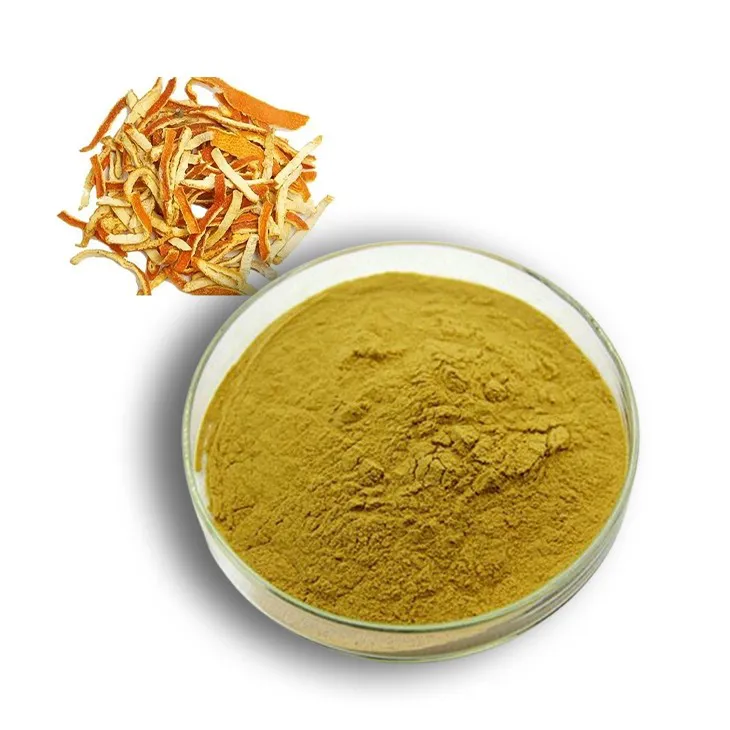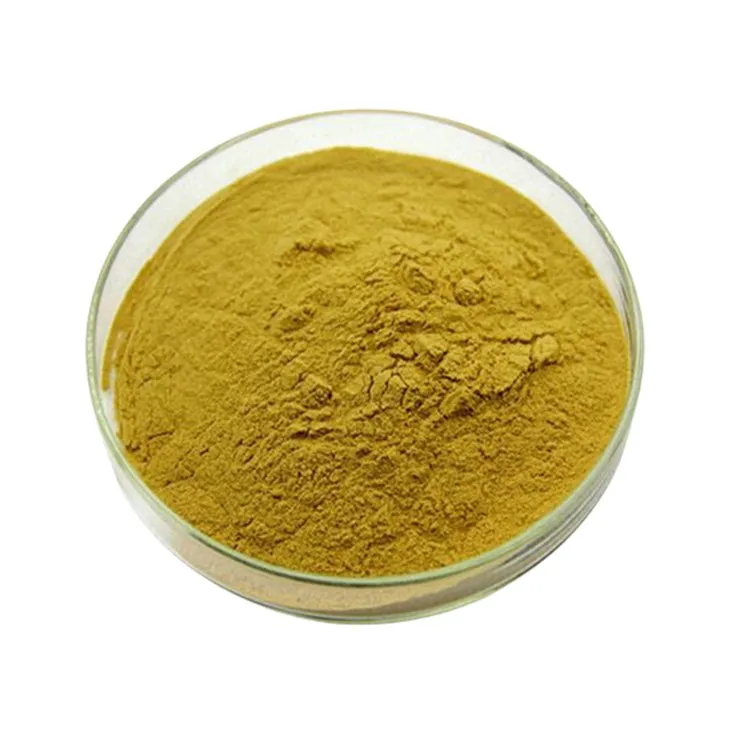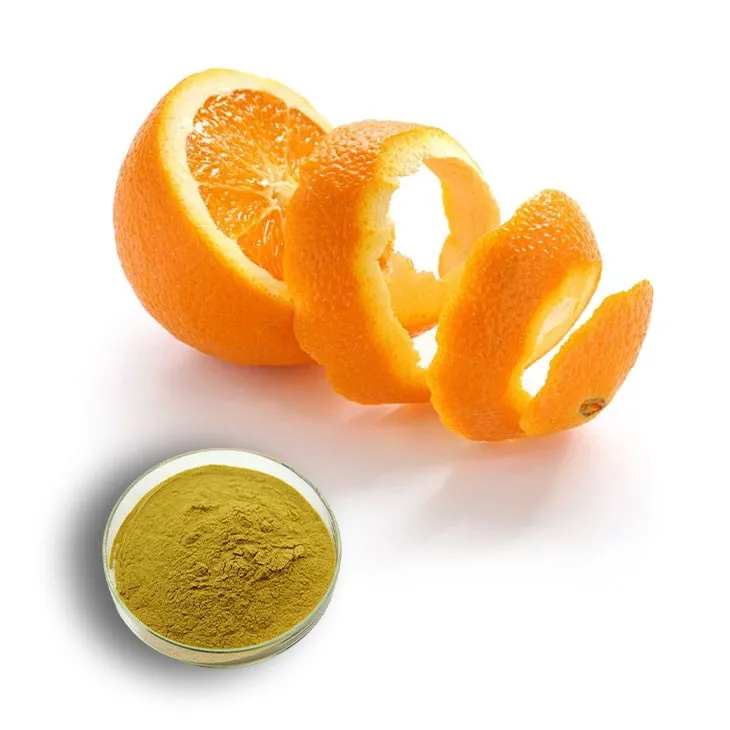- 0086-571-85302990
- sales@greenskybio.com
Is hesperidin good for kidneys? An In-Depth Exploration
2025-07-20

Hesperidin, a bioflavonoid predominantly found in citrus fruits like oranges, lemons, and grapefruits, is praised for its promising health benefits. Widely recognized for its anti-inflammatory, antioxidant, and vascular health properties, Hesperidin has been the subject of numerous studies. Among its various applications, the potential effects of Hesperidin on kidney health have sparked interest in both scientific and medical communities. This article explores the relationship between hesperidin and kidney function, summarizing current research findings and discussing its future potential in kidney health management.
Understanding Kidney Function and Challenges
The kidneys play a vital role in maintaining homeostasis within the body. They filter waste products from the blood, regulate electrolyte and fluid balance, and are involved in hormone production affecting blood pressure and red blood cell production. However, kidney function can decline due to several factors including aging, diabetes, hypertension, chronic infections, and exposure to toxins.
Chronic kidney disease (CKD) represents a substantial global health issue, with millions of individuals affected worldwide. Risk factors include hypertension, diabetes, obesity, cardiovascular disease, and lifestyle choices like smoking. Preventative measures and treatment strategies are critical to managing kidney health and reducing the burden of kidney-related diseases.

What is Hesperidin?
Hesperidin belongs to a class of polyphenolic compounds known as flavonoids, which are extensively distributed in plants and contribute to their color, flavor, and disease resistance. Hesperidin itself is found in the peel and pulp of citrus fruits and is recognized for its antioxidant, anti-inflammatory, and anti-mutagenic properties. It is commonly used in supplements and topical preparations aimed at reducing inflammation, enhancing venous health, and supporting the immune system.

The Potential Impact of Hesperidin on Kidney Health
Growing interest in the potential health benefits of hesperidin has led to numerous studies exploring its effects on kidney function. These studies indicate several mechanisms by which hesperidin might positively influence kidney health:
Antioxidant Properties
Oxidative stress plays a significant role in the progression of kidney damage by disturbing cellular homeostasis and promoting inflammation. Hesperidin's strong antioxidant properties help neutralize free radicals, potentially reducing oxidative damage to kidney cells. By protecting cells from damage, hesperidin could help maintain proper kidney function and slow the progression of kidney disease.
Anti-Inflammatory Effects
Chronic inflammation contributes to deteriorating kidney function and can exacerbate renal disease progression. Hesperidin's capacity to modulate inflammatory pathways, including the inhibition of pro-inflammatory cytokines and enzymes, supports its use as an anti-inflammatory agent. By reducing inflammation, hesperidin may help preserve kidney function and mitigate the adverse consequences of chronic kidney disease.
Improvement of Lipid Profiles
Dyslipidemia, or abnormal lipid levels, is often associated with kidney disease and contributes to cardiovascular complications. Research suggests that hesperidin may improve lipid profiles by reducing low-density lipoprotein (LDL) cholesterol and enhancing high-density lipoprotein (HDL) cholesterol. Improved lipid profiles may alleviate renal stress and positively impact overall kidney health.
Blood Pressure Regulation
Hypertension is a leading cause of kidney damage and a risk factor for chronic kidney disease. Hesperidin has shown potential in improving endothelial function, enhancing nitric oxide bioavailability, and promoting vasodilation. Through these mechanisms, hesperidin may help regulate blood pressure, reducing stress on the kidneys and improving renal outcomes.

Scientific Evidence: Efficacy of Hesperidin for Kidney Health
Existing studies provide insight into hesperidin’s efficacy in supporting kidney health, mainly through animal models and preliminary human research:
Animal Studies
Several animal studies have demonstrated hesperidin's potential in alleviating kidney damage. In rat models, hesperidin supplementation has been observed to improve markers of oxidative stress and inflammation, reduce blood pressure, and enhance kidney function. For example, experiments with diabetic rats showed that hesperidin improved renal histopathological changes, demonstrating its protective effects.
Human Studies
While specific human trials focusing on hesperidin's impact on kidney function remain limited, available studies indicate potential benefits. Research involving individuals with metabolic syndrome or cardiovascular risk factors has shown improved vascular health and favorable changes in cholesterol levels. These results suggest a potential role for hesperidin in managing risk factors associated with kidney disease progression.

Incorporating Hesperidin into Kidney Health Management
For individuals seeking to optimize their kidney health or manage risk factors, incorporating hesperidin through dietary and supplemental strategies might be beneficial. Here are some practical considerations:
Dietary Sources
Citrus fruits, including oranges, lemons, limes, and grapefruits, are rich in hesperidin. Including these fruits and their juices in your diet can provide natural sources of hesperidin, alongside other beneficial nutrients.
Supplementation
Hesperidin supplements are available and can be an option for those looking to increase their intake. It is important to choose high-quality supplements from reputable manufacturers and consult healthcare professionals before beginning any new regimen, especially for individuals with pre-existing kidney issues or those taking medications.
Balanced Lifestyle
Incorporating hesperidin into a balanced lifestyle that includes regular physical activity, a healthy diet, and weight management can further support kidney health. Reducing sodium intake, moderating protein consumption, and staying hydrated are additional kidney-friendly strategies.
Precautions and Considerations
While hesperidin offers promising benefits for kidney health, individuals should approach supplementation cautiously. Potential interactions with medications, particularly blood thinners and other cardiovascular drugs, need consideration. Always consult with healthcare providers before initiating hesperidin supplementation, especially for those with existing health conditions or undergoing medical treatment.
Conclusion
Hesperidin, a citrus flavonoid celebrated for its antioxidant and anti-inflammatory properties, shows potential as a supportive agent for kidney health. Through mechanisms that reduce oxidative stress, inflammation, and hypertension, hesperidin may contribute to preserving kidney function and slowing the progression of renal diseases. Although more comprehensive human research is needed to fully understand its impact, current findings are encouraging and highlight hesperidin's promise in managing or preventing kidney-related challenges. Integrating hesperidin into a balanced diet and lifestyle may offer a holistic approach to kidney health, promoting overall well-being and reducing disease risk.
- ▶ Hesperidin
- ▶ Citrus Bioflavonoids
- ▶ Plant Extract
- ▶ lycopene
- ▶ Diosmin
- ▶ Grape seed extract
- ▶ Sea buckthorn Juice Powder
- ▶ Fruit Juice Powder
- ▶ Hops Extract
- ▶ Artichoke Extract
- ▶ Mushroom extract
- ▶ Astaxanthin
- ▶ Green Tea Extract
- ▶ Curcumin
- ▶ Horse Chestnut Extract
- ▶ Other Product
- ▶ Boswellia Serrata Extract
- ▶ Resveratrol
- ▶ Marigold Extract
- ▶ Grape Leaf Extract
- ▶ New Product
- ▶ Aminolevulinic acid
- ▶ Cranberry Extract
- ▶ Red Yeast Rice
- ▶ Red Wine Extract
-
Beta Carotene
2025-07-20
-
Acerola Juice Powder
2025-07-20
-
Scutellaria Extract
2025-07-20
-
Soy Extract
2025-07-20
-
Oat Straw Extract Powder
2025-07-20
-
Troxerutin
2025-07-20
-
Peppermint Oil
2025-07-20
-
Polygonum multiflorum extract
2025-07-20
-
American Ginseng Root Extract
2025-07-20
-
Cranberry Extract
2025-07-20





















